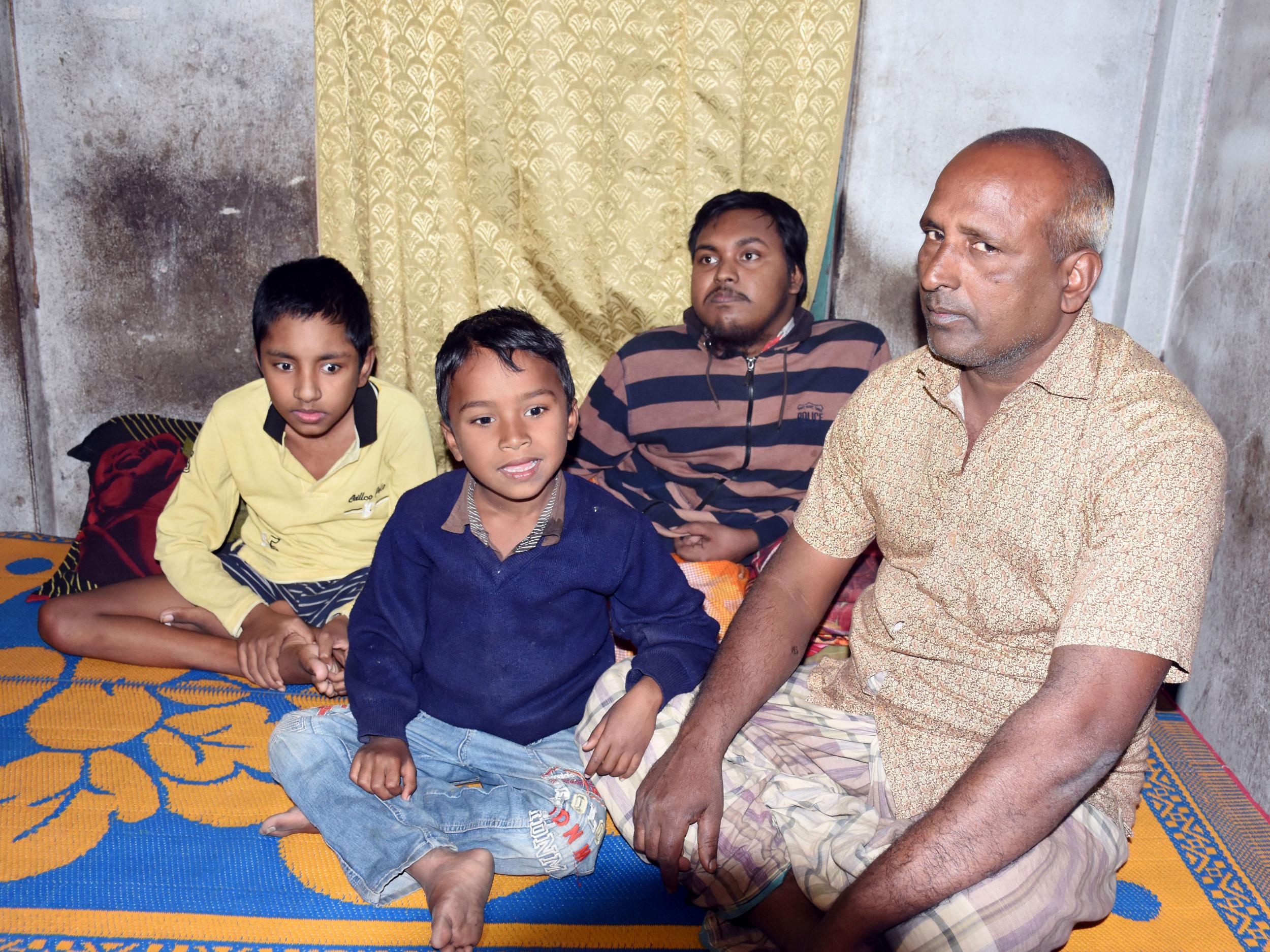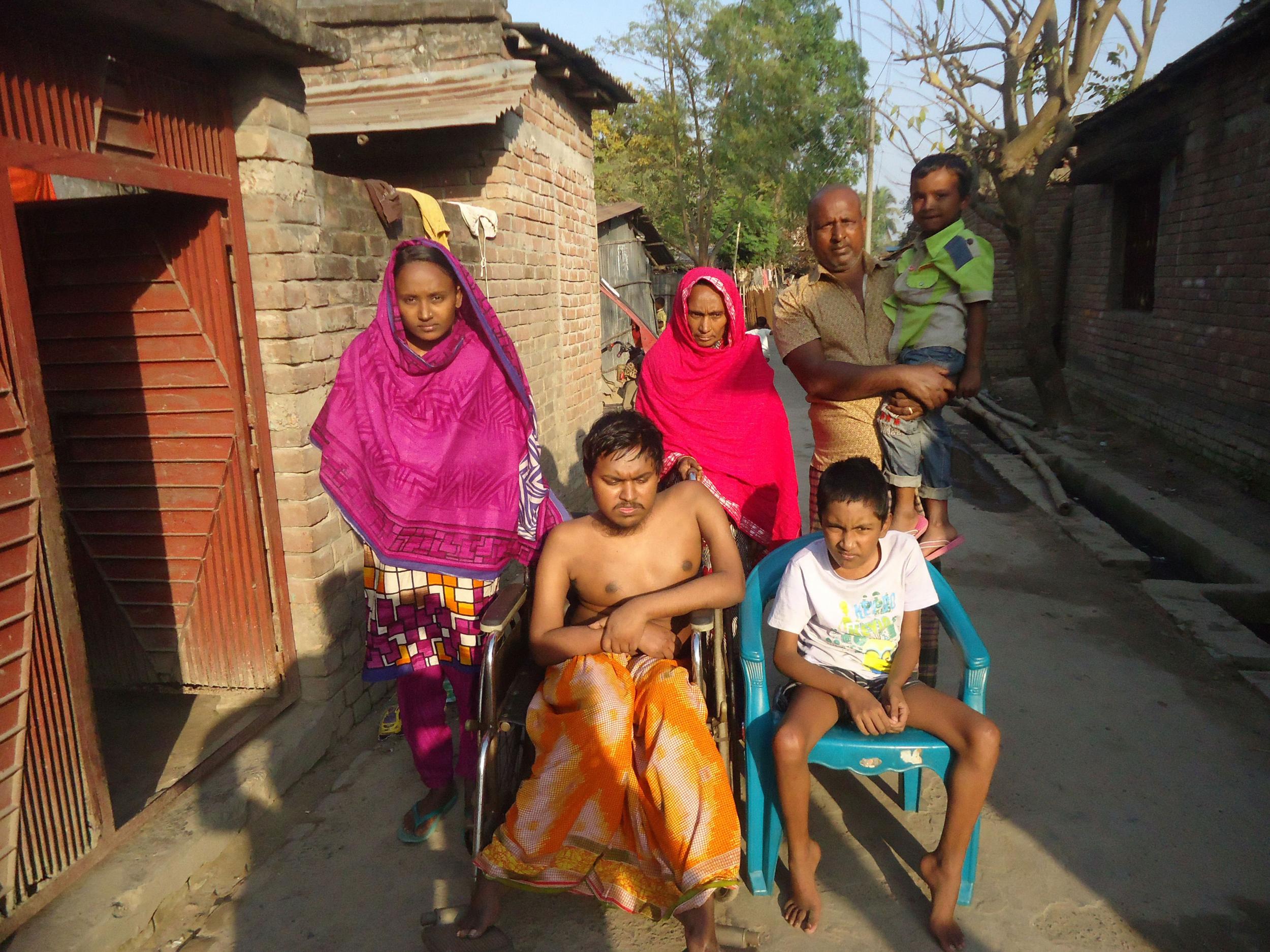Bangladeshi man begs government to euthanise his sons and grandson who have same genetic disorder
But Tofazzal Hossain stopped journalist asking his eldest son about assisted dying request

Your support helps us to tell the story
From reproductive rights to climate change to Big Tech, The Independent is on the ground when the story is developing. Whether it's investigating the financials of Elon Musk's pro-Trump PAC or producing our latest documentary, 'The A Word', which shines a light on the American women fighting for reproductive rights, we know how important it is to parse out the facts from the messaging.
At such a critical moment in US history, we need reporters on the ground. Your donation allows us to keep sending journalists to speak to both sides of the story.
The Independent is trusted by Americans across the entire political spectrum. And unlike many other quality news outlets, we choose not to lock Americans out of our reporting and analysis with paywalls. We believe quality journalism should be available to everyone, paid for by those who can afford it.
Your support makes all the difference.A Bangladeshi father is begging his country's government for permission to euthanise his sons and grandson because they have “no hope of recovery”.
Tofazzal Hossain wrote to his local district administration asking for help to end the lives of the 24-year-old, 13-year-old and eight-year-old with medicine.
All three suffer from Duchenne Muscular Dystrophy, a severe muscle-wasting condition, which causes them to weaken and get progressively worse over time.
One of the most common and severe forms of Muscular Dystrophy, it usually affects boys in early childhood. Men with the condition will usually only live into their 20s or 30s, according to NHS Choices.

Mr Hossain's request has prompted a rare debate about euthanasia in a country, which does not have a state health service like the NHS and an estimated 600,000 suffer from incurable diseases.
“I have taken care of them for years. I took them to hospitals in Bangladesh and India, I sold my shop to pay for their treatment but now I'm broke,” Mr Hossain told the Agence France-Presse (AFP) news agency.
“The government should decide what it wants to do with them. They are suffering and have no hope of recovery. I can't bear it any longer.”
The fruit vendor from the Meherpur region in the southwest of the country said the boys are aware of their condition but can do little for themselves as they are confined to their beds.
But he reportedly refused a journalist's request to ask his eldest son, Mohammad Abdus Sabur, about the unusual request from his father to end his life.
“I told them about the letter,” said Mr Hossain, whose grandson can still go to the bathroom although his condition is worsening. “They did not take it seriously. Perhaps they did not understand the severity of the situation.”
Mahbubul Alam, a doctor who has treated the family, said: "It's a humanitarian case. Everyone should come forward [to help].”
Mercy killing is forbidden by secular law and the religious code followed by the Muslim-majority population.
Most Bangladeshis would oppose the mere discussion of euthanasia, according to Nur Khan Liton, head of local rights group Ain O Salish Kendra.
But Nezamuddin Ahmed, the head of Bangladesh's sole palliative care centre in the country's capital, Dhaka, said: “I think this will lead to healthy debate about assisted death.”
Supporters have left thoughts and prayers for the family on social media.
Assisted dying is illegal in most countries apart from Switzerland, Germany, Mexico, Japan, Canada, and five American states.
Join our commenting forum
Join thought-provoking conversations, follow other Independent readers and see their replies
Comments